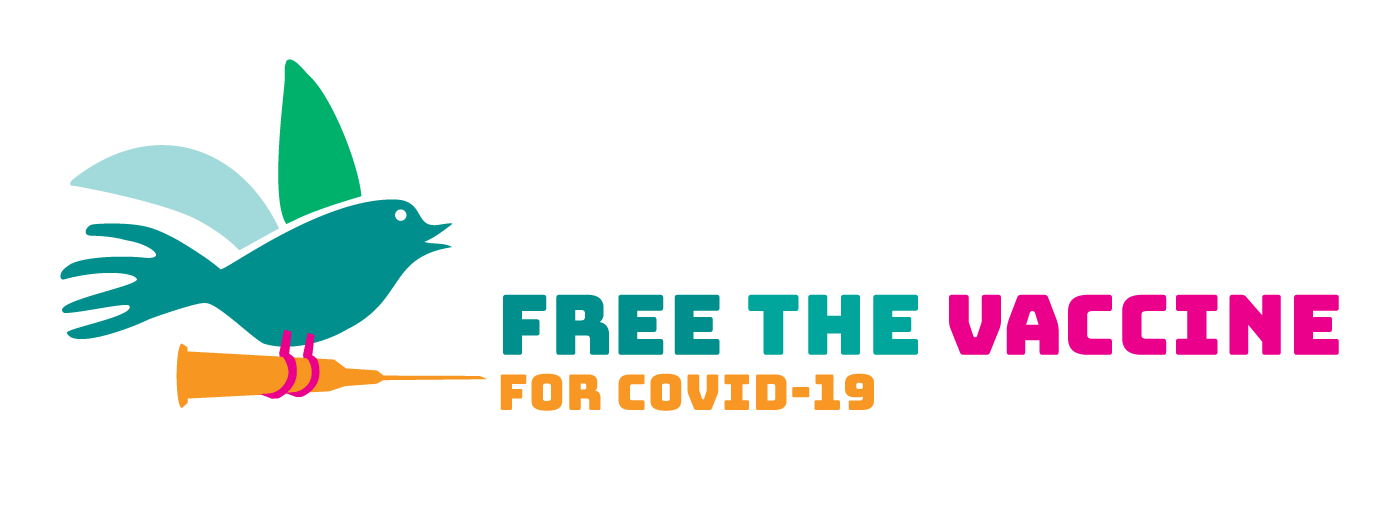“Signing the Open COVID Pledge is therefore not merely a technicality or detail about licensing policy, but a matter of ensuring racial justice in healthcare and opposing institutional violence against Black people.”
by Navya Dasari and Joyce Farley (of FreeTheVaccine.org)
This post also appears on Medium.com
As protesters around the country convene in large numbers to protest police brutality, Trevor Bedford, a research expert at the Fred Hutchinson Cancer Center in Seattle, WA, is worried about the potential influx of coronavirus infections and deaths. He isn’t alone. Minnesota health commissioner Jan Malcolm, although supportive of the protests, has shared similar concerns about the increase in viral transmission, especially given the significant toll the pandemic has taken and could continue to take on Black communities. According to infectious disease specialist Judy Stone, the use of pepper spray and tear gas by police is likely to exacerbate transmission. America is now battling two historical pandemics, both of them disproportionately killing Black people, who comprise only thirteen percent of the U.S. population, but roughly twenty-seven percent of the country’s deaths by police violence, and twenty-five percent of the country’s deaths related to coronavirus. These pandemics are COVID-19 (coronavirus) and police brutality.
The Center for Disease Control (CDC) notes that despite its most common symptoms being a high fever, coughing, and shortness of breath, the novel coronavirus is capable of causing much more damage to the body. According to The New York Times, as of June 9, 2020, coronavirus cases in the United States now exceed 1.9 million, and the country has seen at least 110,000 coronavirus-related deaths. In the midst of this pandemic, racism is yet another blow to health outcomes and socioeconomic stability.
The world witnessed the smartphone-taped murder of George Floyd, a Black man, on May 25, 2020. The disturbing video went viral and was the impetus for global protests against racism and its systems. Floyd was asphyxiated from the pressure on his neck from the knee of Derek Chauvin, a former Minneapolis police officer. Chauvin has been charged with second-degree murder and second-degree manslaughter. This horrific incident mirrored that of Eric Garner, another Black man killed by a police officer on tape. Garner died from an illegal chokehold maneuver in July 2014 by former New York City officer Daniel Pantaleo. Both Floyd and Garner died from extreme police force, highlighting how little has changed for Blacks in this country despite the national pleas for changes in policing and its tactics. As protests once again ignite across the country, this time the Black community must also contend with the disproportionate rate of infection and deaths due to the pandemic.
Articles in The New York Times, The Guardian, and Elemental have highlighted the racial disparities in coronavirus deaths, which for many is unsurprising. Again, Black people make up twenty-five percent of the country’s deaths related to coronavirus, which is estimated to be a staggering loss of 27,500 lives. This crippling figure is rooted in decades of injustice and inequality across social, political, and economic policy areas. The New York Times and ProPublica have written about the strong ties between race and issues of environmental racism, labor, housing, water infrastructure (ex. Flint, MI — where residents still don’t have clean water), and access to health care, all of which determine people’s vulnerability to COVID-19, as well as their (in)ability to recover from it.
What we need now more than ever is a transformation of our criminal justice and healthcare systems, equality, and equity. We need the moral leadership of research institutions willing to put Black people, and all people, before profit.
AstraZeneca, Moderna, and Inovio, three pharmaceutical giants, are leading the charge to develop a coronavirus vaccine. All have received significant federal funding for their efforts in coronavirus research. For example, AstraZeneca has received approximately $1.2 billion USD from the Department of Health and Human Services (HHS), Moderna has received $483 million USD from the Department of Health and Human Services (HHS), and Inovio has received $11.9 million USD from the Department of Defense (DOD). However, once a coronavirus vaccine is finally on the market, it is unclear whether it will be equally accessible to Black people and other minorities. None of the companies leading vaccine research have been able to guarantee that it will be affordable. Furthermore, both the U.S. and U.K. governments should take critical steps right now to ensure that the vaccine is affordable and accessible, regardless of socioeconomic and health insurance status. Paradoxically, at a hearing in February, Alex Azar, the US Secretary of Health and Human Services, told a Congressional committee that while “we would want to ensure that we work to make [the vaccine] affordable… we can’t control that price because we need the private sector to invest.” Azar was implying that if the pharmaceutical industry can’t make money, they won’t invest in necessary health research. However, Azar’s statement ignores the fact that vaccine research has received significant financial investment from the federal government, $2.6 billion USD from the Biomedical Advanced Research and Development Authority, as of May 4, and the government a moral responsibility to ensure that its citizens can afford the products of the research they have funded.
While Azar is one of many on the Hill who may share this view, when it comes to our efforts in combating the pandemic, the focus should be on affordable prevention and treatment. To end the pandemic we will need widespread, indiscriminate access to the coronavirus vaccine, including and especially in the Black communities which have been hit the hardest. Recent history tells us that we cannot count on pharmaceutical corporations to prioritize justice and/or human dignity over profits. We need only to look at the actions of Eli Lilly, Novo Nordisk, and Sanofi regarding insulin to understand why. In the United States, some people with diabetes have been forced to ration expensive, but life-saving insulin, some of them dying as a result. Why are pharmaceutical companies able to price gouge insulin? The aforementioned three companies have monopolized the market by continuing to extend their intellectual property exclusivities, and are able to significantly increase prices as they see fit. Baffling, right? If that isn’t enough, insulin was developed with Canadian taxpayer dollars on a university campus nearly a hundred years ago, so there’s no reason it should be so expensive. In the event that corporations are able to obtain exclusive licenses for coronavirus-related intellectual property, what happened for insulin could happen for a coronavirus vaccine. Still today, one in two people who need access to insulin do not have access.
As we confront both racism and the coronavirus, we must now challenge research institutions that are working on the vaccine, in the hopes they will eliminate exclusive licenses, ensuring that no company can obtain a monopoly on a coronavirus vaccine, therapeutic, or diagnostic. Universities should make relevant intellectual property freely available on coronavirus research, software, medications, and other critical information and tools. This will be rather easy for universities to do. The idea is not just our own; we have partnered with the UK-based Open COVID Pledge, which enables institutions to make this commitment, ensuring that the products of their research are manufactured at scale and at an affordable price point. This means that the vaccine will be available and affordable to all, which will help guarantee equal access for Black communities. Signing the Open COVID Pledge is therefore not merely a technicality or detail about licensing policy, but a matter of ensuring racial justice in healthcare and opposing institutional violence against Blacks.
The Open COVID Pledge isn’t the only initiative addressing access to the vaccine. The Free The Vaccine campaign is a new initiative with the goal of ensuring that the coronavirus vaccine is sustainably priced, available to all, and free at the point-of-delivery. The campaign is a partnership between Universities Allied for Essential Medicines (UAEM), a student-led organization that works to increase access to affordable medicines, and the Center for Artistic Activism (C4AA), which trains people around the world to use creativity to influence power. In its current phase, the Free The Vaccine campaign has focused on advocating for institutions to sign the Open COVID Pledge. But if the goal of this campaign is not met, access to the vaccine will come down to two important questions: who has insurance? And, who has the income to pay for it? If this is the case, COVID-19 deaths will continue to discriminate by race and socioeconomic status, leaving very little to no hope of correcting the colossal injustices we’re seeing. If we do not address affordability, we will see prevention efforts stymied and possibly limited to wealthier, whiter communities and failing in poor minority populations, which means transmission will not be controlled.
As activists, and in collaboration with others, we demand an end to the interconnected pandemics threatening Black lives, both the coronavirus and racism. Therefore, research institutions and communities must realize that they are not exempt from our collective duty to humanity, combating racism, and public health. What we need now more than ever is a transformation of our criminal justice and healthcare systems, equality, and equity. We need the moral leadership of research institutions willing to put Black people, and all people, before profit.
To the titans of the scientific community: the Open COVID Pledge is waiting for you to sign.



